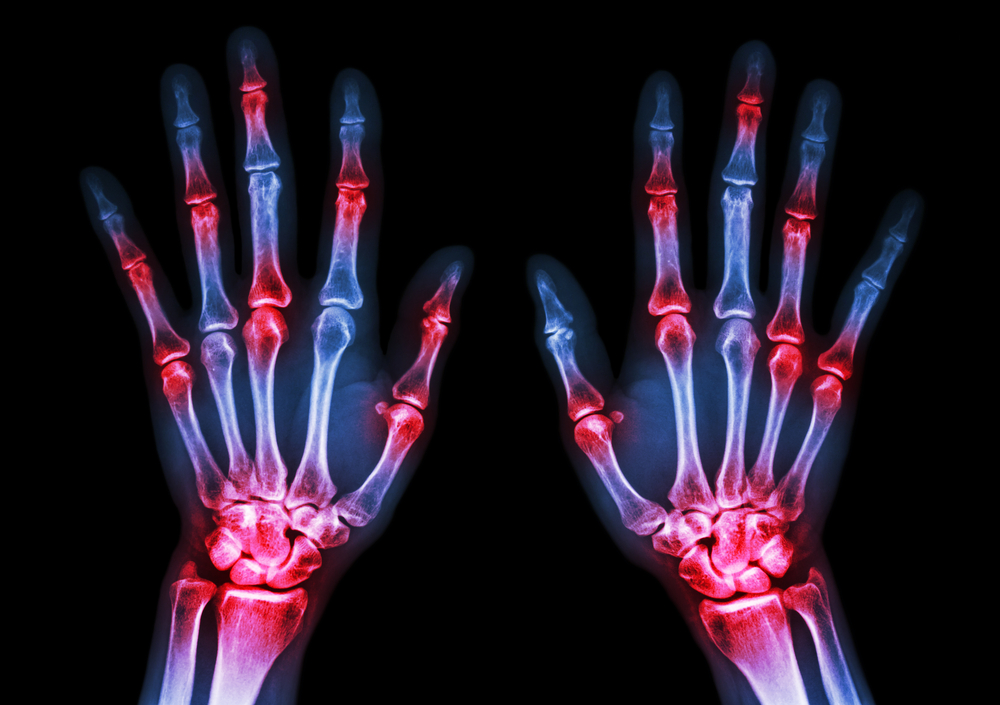- HOME
- SERVICES
- WHERE TO BEGIN
- LOCATIONS
- RESOURCES
- HEALTH PLAN SERVICES
- CAREERS
- EMPLOYEES

Six Surprising Facts about Arthritis
Many of us are aware that arthritis is on the rise in the US, with people experiencing stiffness and pain in the joints of their hands, feet and often throughout their bodies. In fact, the CDC reports that an estimated 78 million Americans will be diagnosed with arthritis. That’s 26% of the projected total population of people over 18 years old.
Arthritis can limit mobility and impact the ability to participate in and enjoy daily activities. As growing numbers of people face the challenge of arthritis, it’s clear that the need for increased awareness is rising as well. We’ve combed the latest research from sources including The CDC, The Arthritis Foundation, Health.com, and The Arthritis Society, and have put together the following list of facts about arthritis that some readers may find quite surprising.
- Nearly 300,000 Infants and Children Have Arthritis
Arthritis is most commonly associated with aging. But two-thirds of all those diagnosed with arthritis are under the age of 65. Arthritis actually impacts 1 in 250 children. The most prevalent type of arthritis in children is juvenile rheumatoid arthritis, and it is one of the most common chronic conditions in children. Children diagnosed are typically between 1 and 5 years of age, and the rate of girls diagnosed is about double the rate for boys.
- More Than 100 Conditions are Forms of Arthritis
Symptoms of osteoarthritis are those people most associate with arthritis and typically impacts older people. This degenerative condition in which the cartilage in joints wears away, inflammation is caused and pain develops can be the result of injury, genetic predisposition, obesity and/or wear and tear.
Rheumatoid arthritis is an autoimmune condition. The body’s immune system attacks the joints, which can lead to swelling, pain, loss of mobility and even joint disfigurement.
Other types of arthritis include gout (a buildup of uric acid in the body that causes extreme pain, particularly in the big toe), Lyme arthritis (from a bacterial infection) and fibromyalgia (an autoimmune condition, but one that impacts muscles rather than joints, and can be widespread throughout the body and cause extreme fatigue).
- Environmental Factors May Play a Role
In addition to a genetic predisposition to developing arthritis, there may also be environmental factors that can increase people’s chances of developing a form of this condition. Carcinogens, such as those found in cigarettes, may dramatically increase the chances of developing rheumatoid arthritis, for example.
A Harvard Study indicates that increased exposure to traffic pollutants might increase the risk of developing arthritis. It found that women who were in closer proximity to this form of air pollution had higher rates of arthritis. Additionally, while osteoarthritis has been found in ancient skeletons, rheumatoid arthritis has not been. It is posited that could be a sign that the rise of the condition is tied to environmental factors.
- Rheumatoid Arthritis Patients Have Increased Risk of Heart Attack
The systemic inflammation of this autoimmune condition may be at the root of the connection. Those with rheumatoid arthritis are two to three times more likely to experience a heart attack, even if their cholesterol levels and blood pressure are within healthy levels.
There may also be a connection between rheumatoid arthritis and diabetes, as well as lung disease. While the connection is not clear, it’s believed to be related to inflammation. For example, inflammation can make breathing more challenging. It’s important if someone is diagnosed with an autoimmune disease that they have screenings for other conditions and that their health is routinely monitored.
- Arthritis’ Economic Impact is in the Billions of Dollars
With outpatient visits, prescriptions, hospitalizations and lost wages, it’s estimated that arthritis costs $156 billion annually. The Arthritis Foundation states, “The nearly 300,000 children with juvenile arthritis and rheumatic conditions make an estimated 621,000 of visits to the doctor’s office every year.”
Patients who have arthritis can be limited in the types of work they can do as a result of limited mobility and pain. In severe cases, some may be unable to work at all. As a result of these challenges, workers with arthritis miss more workdays than those with any other health condition. Arthritis is the number one form of disability in the United States.
- Cold Can Help Arthritis Pain
While acknowledging little research exists that ties cold weather to arthritis, the National Health Institute’s newsletter reported in 2009, “People can actually feel changes in air pressure in their joints, which is why some people say they can predict the weather by the pain in their joints.” Dr. Mark Gourley of NIH was quoted as saying, “Do what you can to keep warm. Bundle up from head to toe in several layers, preheat the car before getting into it and make sure your home or apartment is kept warm.”
But on the flipside, ice packs can be helpful for relieving the swelling associated with arthritis. While heat can help relax stiff muscles, the Arthritis Foundation even recommends submerging in an ice bath to help reduce painful swelling in joints.
If you or a family member have been diagnosed with arthritis, whether juvenile or adult arthritis, Premier Home Health Care Services, Inc. can help with daily tasks, prescribed exercise routines and medication reminders. Our trained staff can also monitor overall health, particularly in light of the connection between arthritis and other health issues.
Learn more about how Premier Home Health Care can help. Call us today at 1-866-668-4429.
